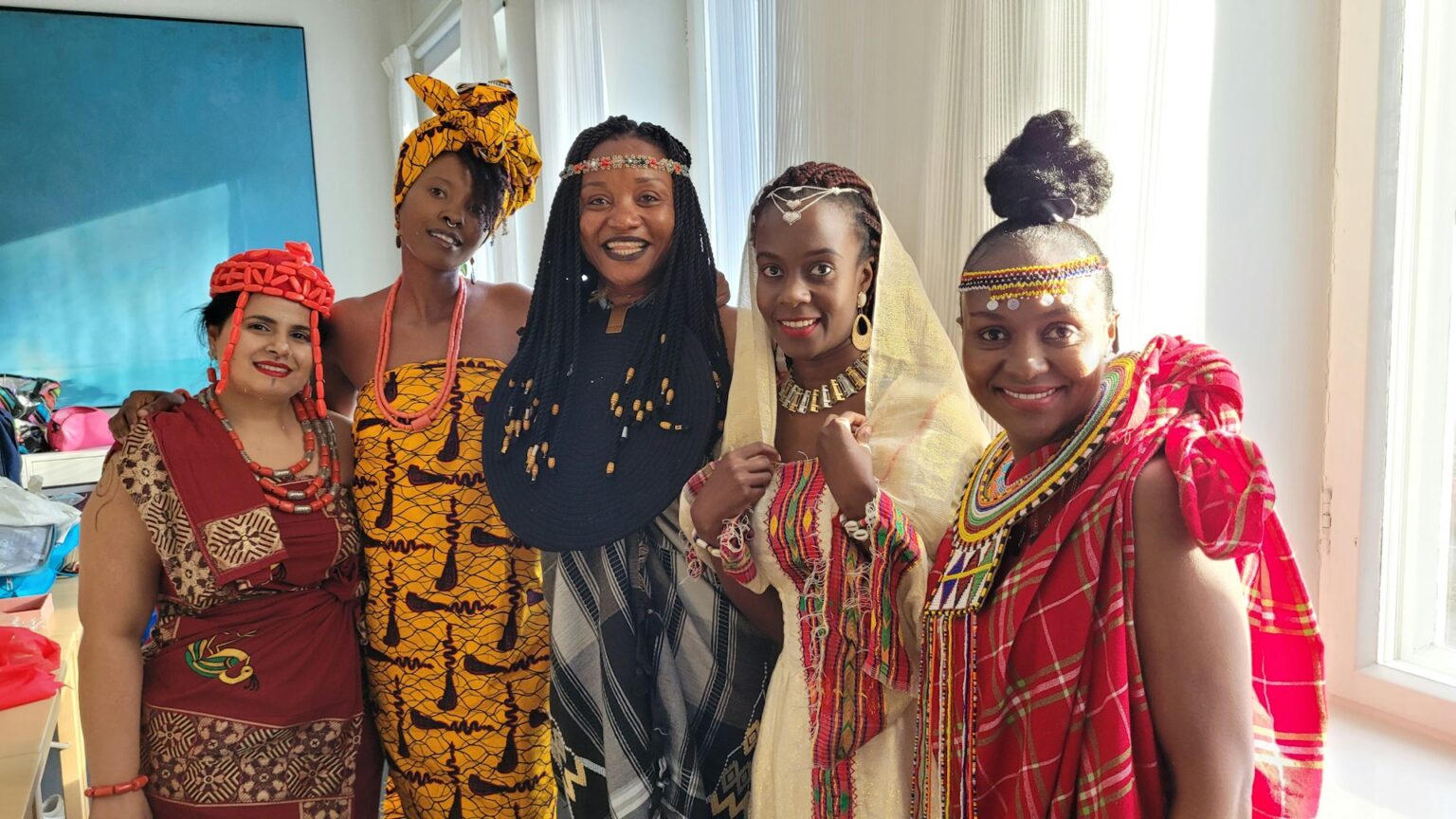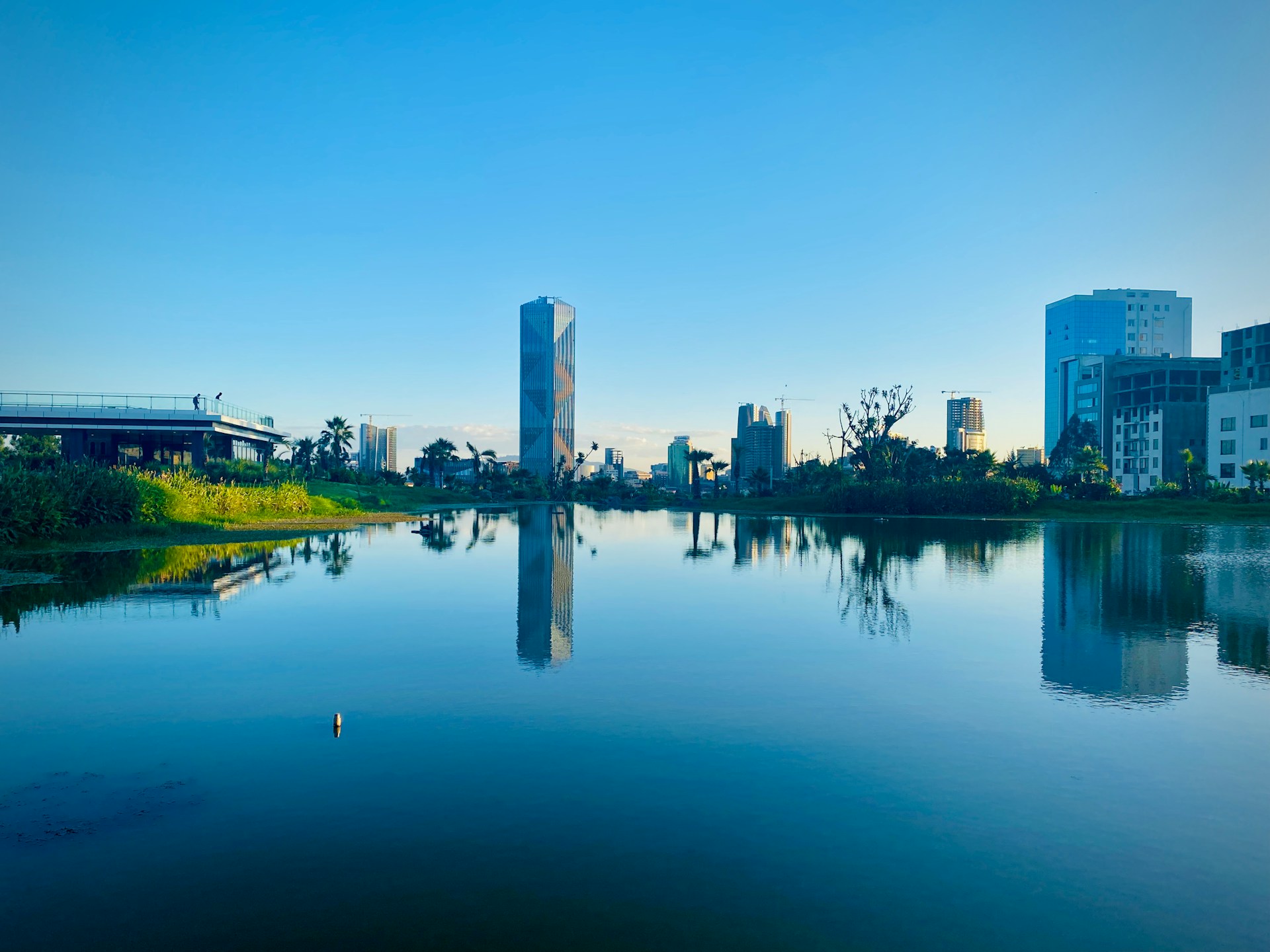From the vibrant streets of Accra to the soulful corners of Harlem, the African Diaspora tells a story of movement, endurance, and cultural brilliance. Shaped by the harrowing journeys of the transatlantic slave trade and the hopeful paths of voluntary migration, Africans have left indelible marks on every corner of the globe.
Their influence pulses through music, cuisine, language, art, and commerce, weaving a tapestry that connects continents and generations. This article explores the origins, challenges, and extraordinary contributions of the African Diaspora, uncovering how its legacy continues to shape the world in ways both visible and profound.
Key Takeaways
- The African Diaspora encompasses both historical forced relocations and contemporary voluntary migrations, significantly influencing cultural and socio-political dynamics in host societies.
- The transatlantic slave trade had profound effects on demographic patterns and cultural identities, with descendants preserving elements of their African heritage while adapting to new environments.
- Recognition and comprehensive research initiatives are essential for addressing the diverse experiences and contributions of the African Diaspora, promoting better representation and inclusion in global discourse.
Origins and Definition of the African Diaspora
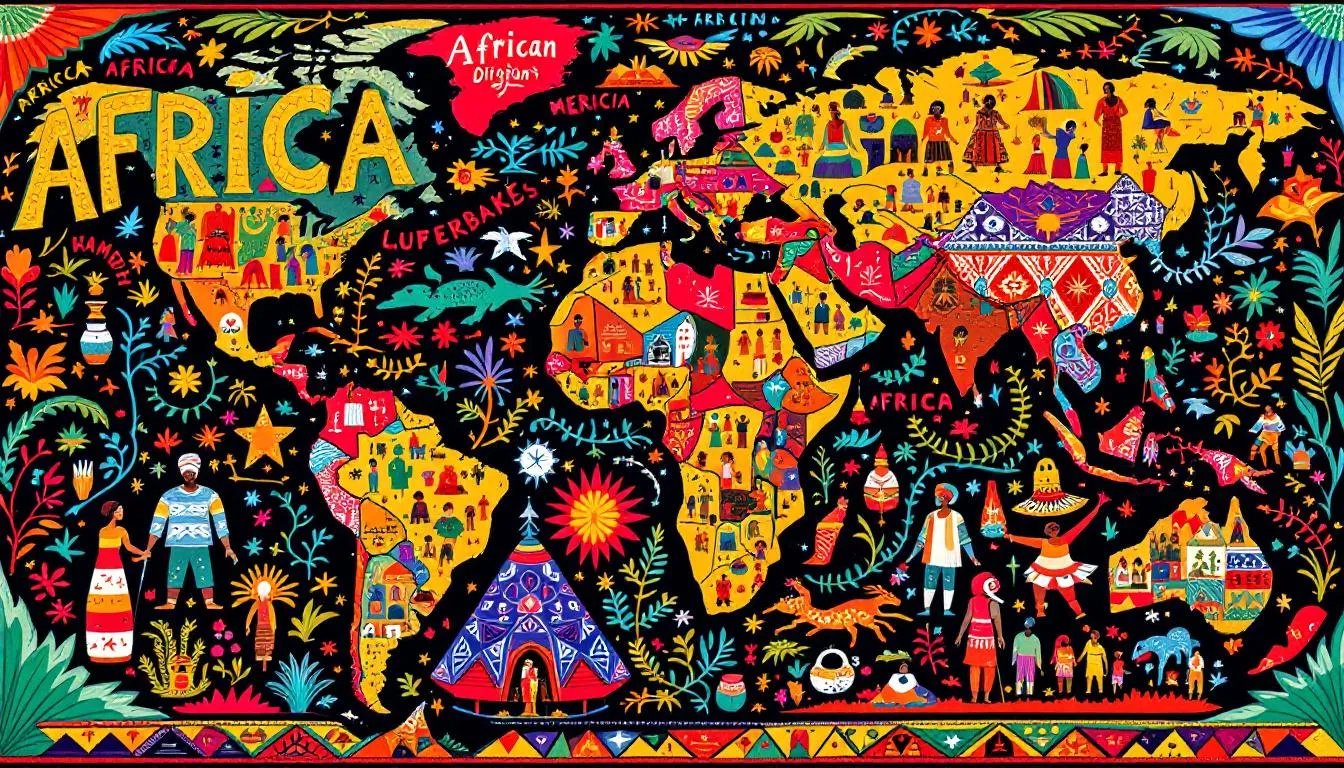
The term ‘African Diaspora’ gained common usage around the early 2000s, encapsulating the widespread dispersal of African people across the globe. This global dispersion is often narrowly defined by the transatlantic slave trade, which forcibly relocated millions of Africans to the Americas and Europe, creating what is often referred to as the ‘black diaspora’. However, the term diaspora encompasses a broader range of historical and contemporary movements, including voluntary migrations and various forms of displacement.
Members of the African Diaspora have developed diverse religious, cultural, and socio-political traits. These traits enable them to thrive in new environments. Their adaptability has fostered vibrant and diverse communities that balance connections to their ancestral homelands with integration into host societies. Preserving African heritage while embracing new cultural elements is a hallmark of the African Diaspora.
The African Union recognizes the diaspora as a crucial part of Africa’s development, officially designating it as the sixth region of the continent. This recognition underscores the importance of the African Diaspora in shaping not only the cultural and social landscapes of their host countries but also contributing to the development and progress of the African continent. The dynamic and continuous nature of the African Diaspora reflects its complexity and the resilience of its people.
Grasping the origins and definitions of the African Diaspora allows for a deeper appreciation of its historical significance and contemporary relevance, setting the stage for exploring its various global dimensions, including a narrower definition.
Historical Context: The Transatlantic Slave Trade
The transatlantic slave trade and the Atlantic slave trade is one of the darkest chapters in human history, marked by the forced migration of millions of Africans to the New World. Between 12 to 14 million enslaved Africans were shipped across the Atlantic Ocean during the Middle Passage, a journey notorious for its extreme brutality and high mortality rates. This harrowing experience left an indelible mark on the descendants of those who survived.
The transatlantic slave trade significantly altered the demographic landscape of the Americas. Enslaved Africans were brought to various European colonies, where they played a crucial role in the economic development of these regions. Their labor was instrumental in the production of cash crops such as sugar and tobacco, which were vital to the economies of the colonies. African slaves contributed economically and culturally, bringing rich traditions and knowledge that influenced their new environments.
Only 3-5% of enslaved Africans were brought to what is now the United States, with the majority transported to the Caribbean and South America. This distribution had significant implications for the cultural and social dynamics of these regions, shaping the development of African diaspora communities and the first Africans in different ways.
The transatlantic slave trade was part of a broader system known as the triangular trade, which connected Europe, Africa, and the Americas in a complex web of commerce and exploitation. The legacy of this trade is a testament to the resilience of African people, who, despite enduring unimaginable suffering, managed to preserve and adapt their cultural identities.
Understanding the transatlantic slave trade is crucial for grasping the origins of the African Diaspora, providing a backdrop for appreciating the struggles, adaptations, and triumphs of people of African descent.
Genetic Diversity and Ancestral Homelands
The unparalleled genetic diversity within African populations offers valuable insights into human genetics and our evolutionary history. Africa is home to a high level of genetic variability, shaped by its complex population history and numerous admixture events over the last 10,000 years. This diversity has profound implications for understanding health and disease susceptibility among people of African descent.
Significant population structure exists within Africa, indicating deep historical separations among groups of African origin, which have contributed to the genetic richness observed today. These separations reflect the diverse evolutionary paths taken by different African populations and other populations, shaped by natural selection and environmental pressures. For instance, certain genetic variants have developed in response to climate and infectious diseases, enhancing resilience against specific health challenges.
However, the high genetic diversity in African populations also means that some genetic adaptations can lead to increased disease susceptibility in modern environments. This underscores the importance of studying African genetics to develop better healthcare strategies, particularly for chronic diseases that disproportionately affect people of African descent.
The ancestral homelands of African diaspora communities are deeply rooted in the genetic fabric of their populations. This genetic diversity not only aids scientific endeavors but also connects us to the rich heritage and history of African peoples, including those with African ancestry. It helps to paint a more comprehensive picture of the African Diaspora, highlighting the resilience and adaptability of its members.
Studying genetic diversity and comparative history of ancestral homelands deepens our understanding of the African Diaspora’s unique challenges and contributions, bridging the gap between past and present and illuminating the intricate connections defining the African experience.
Cultural Identity and Heritage in the African Diaspora
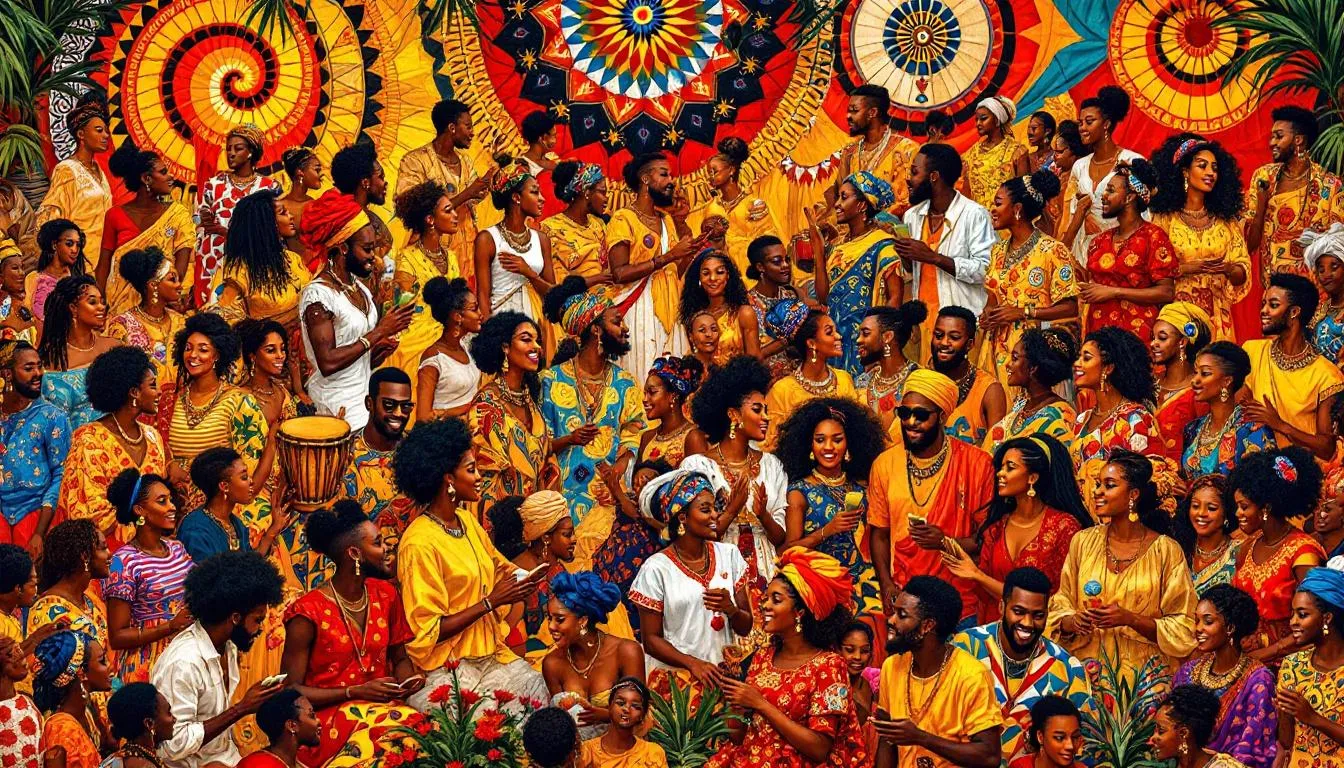
Cultural identity within the African Diaspora is a tapestry woven from threads of resistance, adaptation, and resilience. Historical narratives often depict the African Diaspora as a crucial element of resistance against racial and colonial oppression, highlighting the strength and perseverance of its people. This legacy of resistance is a cornerstone of cultural identity for many in the diaspora.
Diaspora Africans often navigate a complex interplay between assimilating into the culture of their new country and retaining their own cultural practices. This struggle is marked by pressures from both their new environment to conform and their heritage to maintain traditional customs. This results in a dynamic cultural identity that blends influences from their ancestral homelands and adopted countries.
Individuals in the African Diaspora commonly identify themselves through a mix of their ancestral culture and the culture they experience in their current residence. This blend reflects a combination of familial roots, personal beliefs, and the environments in which they have been raised. It is a testament to the adaptability and resilience of African diaspora communities, who continuously evolve while honoring their heritage.
The legacy of the transatlantic slave trade includes deep-rooted social and racial inequalities that persist in contemporary societies. These inequalities are a constant reminder of the historical injustices faced by people of African descent and the ongoing struggle for equality and recognition.
Cultural identity and heritage in the African Diaspora are powerful narratives of survival and adaptation. They reflect the enduring spirit of African people, who have managed to preserve their cultural essence while navigating the complexities of new environments.
SEE ALSO: Connection: The Panacea for Diaspora Communities
Health Impacts and Genetic Adaptations
The African Diaspora faces a disproportionately high burden of chronic diseases and health disparities, often linked to genetic factors. This highlights the urgent need for comprehensive sampling and genetic characterization of African diaspora populations to benefit from genomic medicine. Understanding the genetic basis of these health disparities allows for the development of more effective healthcare strategies tailored to the needs of people of African descent.
Some genetic alleles present in the African Diaspora are maladaptive in modern-day environments, leading to negative health outcomes. These maladaptive alleles, once advantageous in historical contexts, now contribute to the higher prevalence of certain chronic diseases. This underscores the importance of integrating genetic research into public health initiatives to address these challenges.
Health impacts and genetic adaptations are critical areas of study for improving the well-being of African diaspora communities. By leveraging the insights gained from genetic research, we can work towards reducing health disparities and promoting better health outcomes for people of African descent.
The Role of Voluntary Migration in Modern Times
Voluntary migration has played a significant role in shaping the modern African Diaspora. The diaspora contributes significantly to local economies through remittances, which are often vital for sustaining families back home. These financial contributions have a profound impact on the development and stability of their countries of origin.
In addition to economic contributions, the African diaspora influences cultural spheres and enhances educational opportunities through scholarship initiatives for students in need. These initiatives bridge the gap between developed and developing regions, fostering knowledge transfer and capacity building.
However, African diaspora communities also face challenges such as discrimination and economic barriers that can hinder their integration into host societies and global communities. These challenges highlight the need for supportive policies and programs to facilitate their inclusion and participation in their new environments.
Recognizing the potential of their diasporas, African governments are enacting policies to harness their contributions towards development. These efforts aim to create a mutually beneficial relationship between diasporas and their countries of origin, promoting growth and progress on both ends.
Voluntary migration in the modern world is a testament to the enduring connections between Africa and its diaspora in the present day. It highlights the dynamic interplay between migration, development, and cultural exchange, enriching both host and home countries.
African Diaspora in Latin America and the Caribbean

The African presence in Latin America and the Caribbean is deeply rooted in the legacy of the transatlantic slave trade, which forcibly brought millions of Africans to these regions. This historical migration has left a lasting impact on the cultural, social, and demographic landscapes of these areas.
In Brazil, more than half of the population identifies as having African ancestry. This includes those who identify as Black (preto) and Mixed (pardo), together making up roughly 55.5% of the population, according to the 2022 Brazilian census. These communities continue to shape Brazil’s culture, from music and cuisine to festivals and traditions and are a testament to the vibrant African heritage that continues to thrive in Latin America.
In many Caribbean countries, people of African descent form a significant portion of the population, though the exact percentage varies. For instance, over 90% of the populations in Barbados and Haiti have African ancestry, around 76% in Jamaica, and roughly 34% in Trinidad and Tobago, with additional portions identifying as multiracial.
While these communities maintain strong connections to their African heritage, many also emphasize their national identity. This dynamic reflects the diverse ways African ancestry is integrated and expressed throughout the Afro-Caribbean region.
Cultural practices and festivals influenced by African heritage prominently showcase the enduring impact of the African Diaspora in these regions. These celebrations not only honor their African roots but also highlight the dynamic cultural fusion that characterizes Latin America and the Caribbean.
The African Diaspora in Latin America and the Caribbean is a vibrant testament to the resilience and adaptability of African people. It underscores the profound influence of African heritage on the cultural identities of these regions.
The Influence of the African Diaspora on Global Culture
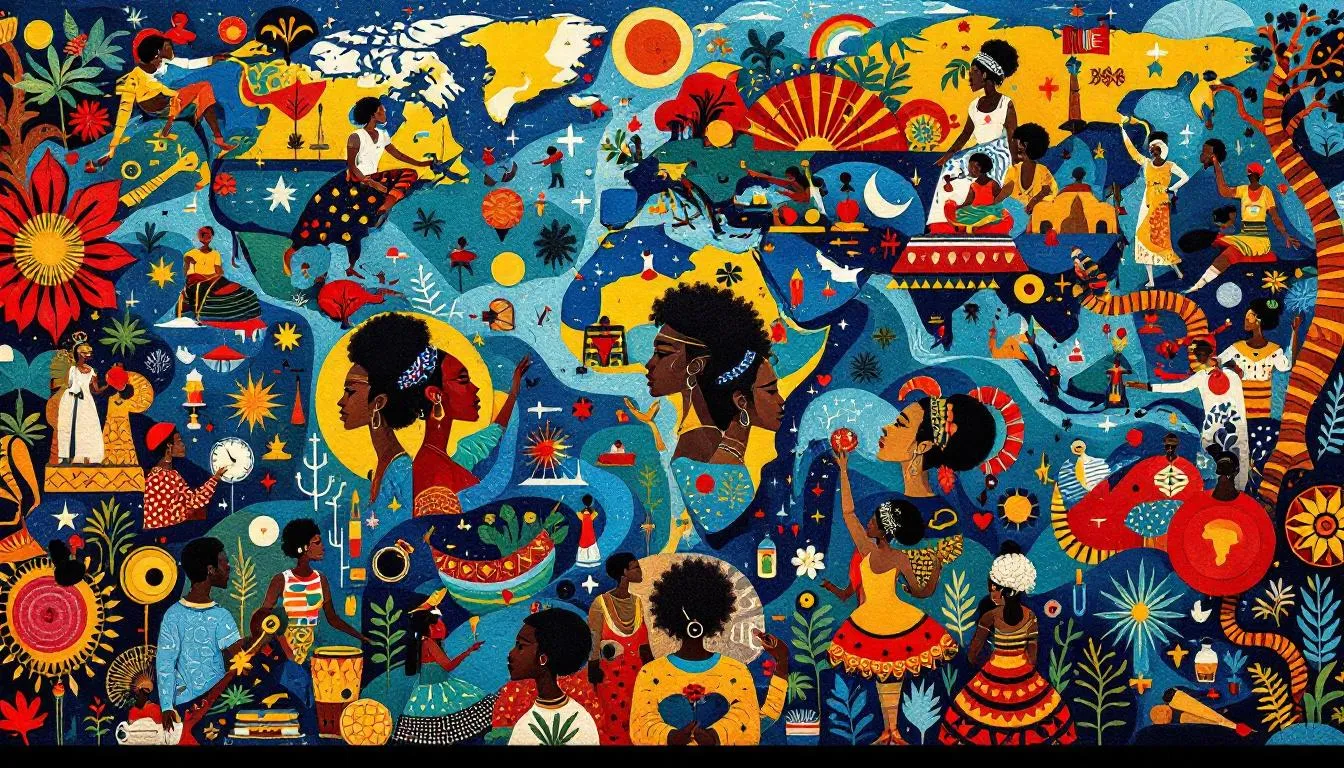
The African Diaspora has left an indelible mark on global culture, significantly shaping artistic, musical, and literary landscapes around the world. Vibrant musical genres such as Afrobeat and Hip Hop, which have their roots in African rhythms and storytelling traditions, have taken the world by storm, influencing countless artists and genres globally. These musical expressions are not merely entertainment but a powerful means of cultural preservation and identity.
Cultural festivals like the Cape Town International Jazz Festival draw large crowds and promote an appreciation for African heritage. These festivals serve as platforms for showcasing the rich and diverse cultural expressions of the African Diaspora, fostering cross-cultural understanding and appreciation.
Artistic partnerships between African and diaspora artists lead to innovative projects that highlight diverse expressions and narratives. Films like ‘Black Panther’, which celebrate African culture and heritage, have resonated globally, highlighting the demand for authentic African stories. These narratives challenge stereotypes, offering a more nuanced understanding of African cultures and histories.
The increase in voluntary migration from Africa since the late 20th century has led to diverse socio-economic contributions, from remittances to knowledge transfer. Voluntary immigrants often maintain strong ties to their countries of origin, contributing to both economic and cultural exchanges. These exchanges enrich both the host and home countries, promoting mutual growth and understanding.
The presence of a vibrant African diaspora enhances cultural diversity in host countries, promoting cross-cultural understanding and enriching the global cultural tapestry. Better representation of African Diaspora narratives is essential for acknowledging their significant role in shaping global culture and society.
Efforts for Recognition and Inclusion

Efforts for recognition and inclusion of the African Diaspora have gained momentum, particularly through the initiatives of the African Union. The African Union characterizes the diaspora as individuals of African heritage residing outside Africa, regardless of their citizenship or nationality. This inclusive definition highlights the importance of recognizing the diverse experiences and contributions of the African Diaspora.
The framework provided by the African Union includes specific guidelines for diaspora affairs organizations, covering eligibility, election procedures, and representative responsibilities. This structured approach aims to ensure that diaspora voices are heard and that they can actively participate in shaping policies and initiatives that affect them.
Twenty seats in the Economic, Social, and Cultural Council’s General Assembly are designated for diaspora representatives, addressing prior gaps in representation. This allocation is a significant step towards ensuring full participation and operational capacity for diaspora communities in African affairs, promoting a more inclusive and representative governance structure.
Call for Comprehensive Research and Representation
There is a recognized need for more detailed studies to capture the varied experiences and contributions of the African Diaspora across different contexts. Comprehensive research can help address stereotypes and misconceptions, promoting a more nuanced understanding of the African Diaspora. Engaging with diaspora communities is crucial for effective research, ensuring that their voices and perspectives are included.
The Diaspora Legal Framework, developed through extensive consultations, ensures that diaspora voices informed its creation. This is part of a broader effort to support research initiatives on the African Diaspora. Following the framework’s establishment, an online portal will be launched to facilitate engagement and provide resources for diaspora organizations. This portal will serve as a valuable tool for connecting diaspora communities and supporting their initiatives.
Funding and institutional support are vital for advancing research on the African Diaspora and its diverse contributions, which are urgently needed. By investing in these research efforts, we can gain a deeper understanding of the African Diaspora’s impact and work towards more inclusive and representative policies and practices.
Frequently Asked Questions (FAQs)
What is the African Diaspora?
The African Diaspora encompasses the global dispersal of African people, including those forcibly taken during the transatlantic slave trade and those who have migrated voluntarily. This transformative movement has significantly influenced cultures worldwide.
How did the transatlantic slave trade impact the African Diaspora?
The transatlantic slave trade profoundly impacted the African Diaspora by forcibly relocating millions of Africans, which altered demographics and played a crucial role in the labor and economic development of European colonies. This forced migration resulted in a lasting legacy of cultural exchange and social networks within the African Diaspora.
What are some cultural contributions of the African Diaspora?
The African Diaspora has made profound cultural contributions through genres such as Afrobeat and Hip Hop, as well as through cultural festivals, artistic collaborations, and films that honor African heritage. These influences demonstrate the richness and diversity of global culture stemming from the African Diaspora.
What challenges do African diaspora communities face?
African diaspora communities face significant challenges, including discrimination, economic barriers, and health disparities. Addressing these issues requires targeted efforts for recognition, inclusion, and comprehensive research.
Why is comprehensive research on the African Diaspora important?
Comprehensive research on the African Diaspora is crucial for accurately representing their diverse experiences and contributions, while also challenging stereotypes and misconceptions. This understanding fosters a more inclusive perspective on their significant impact within global society.
Final Thoughts
The African Diaspora is a testament to the resilience, adaptability, and enduring influence of African people across the globe. From the historical horrors of the transatlantic slave trade to the vibrant cultural contributions of modern diaspora communities, the African Diaspora continues to shape and enrich global society.
Understanding the origins, genetic diversity, cultural identity, health impacts, and modern contributions of the African Diaspora is crucial for appreciating its significance.
As we reflect on the African Diaspora’s journey, let us continue to celebrate their resilience and contributions, and work towards a future where their voices are heard, and their heritage is honored.
